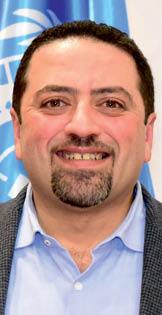In Palestine as elsewhere, the impact that the COVID-19 pandemic has had on our lives has been as tragic as it was unexpectedly rapid, and our thoughts go out to all the victims and their families who have been so severely affected. Unfortunately, the situation requires that we not limit ourselves to being comforted by the positive trend of the daily health reports, which, after weeks of bad news, are finally encouraging. What the world has witnessed in the past three months is in fact a global shock that must rightly alarm us.
While the end of the restrictive measures seems imminent, the COVID-19 emergency is not destined to be finished at the end of the next lockdown; the succession of knock-on effects will continue to afflict the world’s economy with a series of fallouts whose extent is currently difficult to foresee. If uncertainty remains the key word, as confirmed by all analysts, Palestine must activate all its energies and resources in order to lessen the suffering that is predicted as a result of the repercussions of the pandemic. We need to manage the trend of the economy now more than ever before. To do so, it is necessary to monitor more attentively the production results and direct the course of economic initiatives where the greatest potential can be seen for both the short and long terms. We must be aware that, in addition to the risks and renewed fragilities, the new scenario provides a series of opportunities that we must seize in the best possible way.
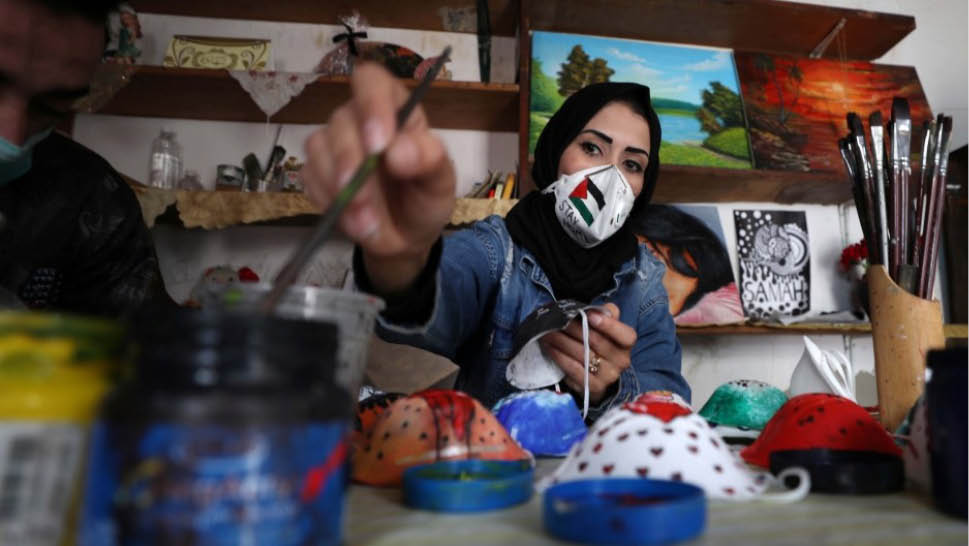
An often-repeated famous adage teaches us that a flutter of butterfly wings in China can cause a hurricane in the Atlantic Ocean. Never as in this globalized world have we all been as connected and susceptible to suffering the consequences of the new “black swan,” today called the coronavirus, to summarize the great lesson of Lebanese mathematician and philosopher Nassim Nicholas Taleb. In light of the available data, analysts agree on a substantial consideration: the world GDP is destined to experience a global downturn – how abrupt is not yet known – and the few sectors that will not be touched by this downturn will clearly only be those related to some essential commodities, such as food, pharmaceuticals, and ICT. No component of the value chain will be spared by the disrupting effect of the virus, with an impact that has already begun to affect both demand and supply, creating an unprecedented market shock. The effect of these predictions is cyclical and, unfortunately, perverse. We all have experienced this pattern in previous economic crises: a market contraction quickly turns into lower production, which translates into a shortage of liquidity and lower consumption, in a cycle that is destined to reproduce itself in a loop. On the financial side, capital flight frightens the markets, rekindling fears about the destabilizing effects of possible insolvency in many countries. On the fiscal side, government earnings forecasts for the year 2020 have been revised down by an average of 30 percent, as projected by scholars and research houses: a real threat to the possibility of providing essential services to the population.
Partnering for economic stability, employability, market reclamation, and growth, we must strive to seize the opportunities inherent in the new reality, build up local production, and repurpose industrial activity to fill new demands locally, regionally, and internationally.
If this general scenario is unlikely to spare any country, we must also consider that the destructive effects of COVID-19 will be stronger in the countries already experiencing a fragile economy, as well as in the most vulnerable segments of the population. The crisis has already started to put the segments of the medium- and low-income populations in difficulty, with particular reference to all people active in the informal economy who frequently have limited access to an adequate social and health protection system. Youth are also in danger of having to pay dearly for the effects of the pandemic. Even though they carry great hopes, young people are largely engaged in the “gig economy,” accustomed to record unemployment rates, and now destined to be the first victims of the system’s contractions. This fate is also likely to be shared by women, an economically fragile group who most probably will be the first to be affected by a decrease in work demand.
It must now be clear that we are facing an adverse scenario, made up of many perversely entangled variables, and it’s up to us to decide how to face the situation. Let’s underline it as sharply as we can: pessimism, procrastination, or even worse, giving-in, must appear as the last of the solutions to be used to face the crisis. “Pessimism of the intellect, optimism of the will” means that rather than hesitating, this is the moment to affirm a strong and concerted response, capable of articulating a clear, pragmatic, encouraging recipe for a sound exit strategy. This path must be taken by Palestine, a country accustomed to facing adversity and responding to difficulties with resilience and perseverance. Its communities and, once again, the people – the most vulnerable yet valuable assets – are the ones who expect an effective intervention and who we have a collective duty to protect.
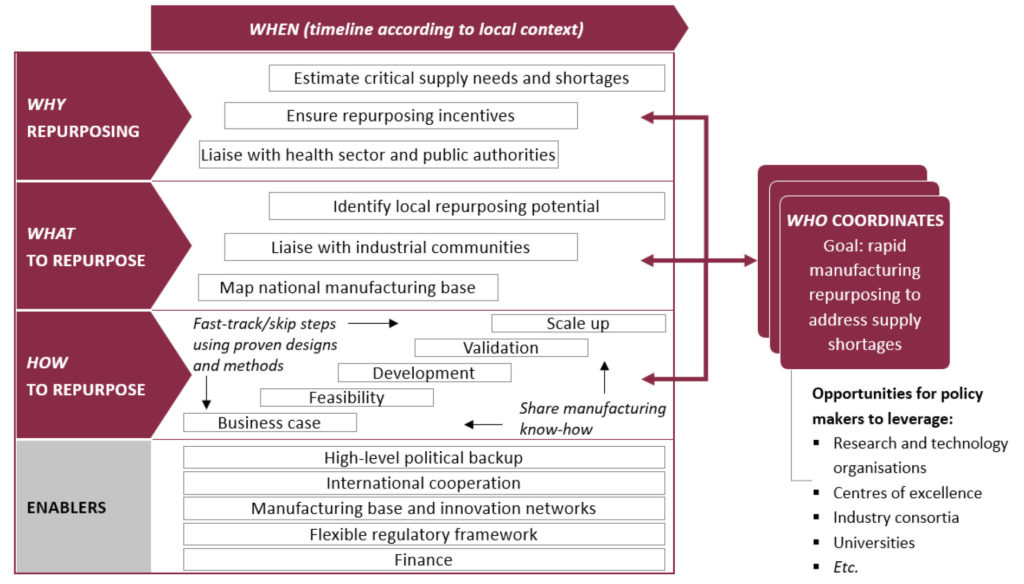
The downward spiral we have described above – less production, less employment, less liquidity – must be broken through a market approach that is capable, first, of providing an immediate response to the COVID-19 emergency and, second, of simultaneously supporting those high value-added activities that can not only maintain critical supplies and services as we confront the pandemic but also trigger a transformation in the performance of the Palestinian economy as soon as the pandemic is behind us.
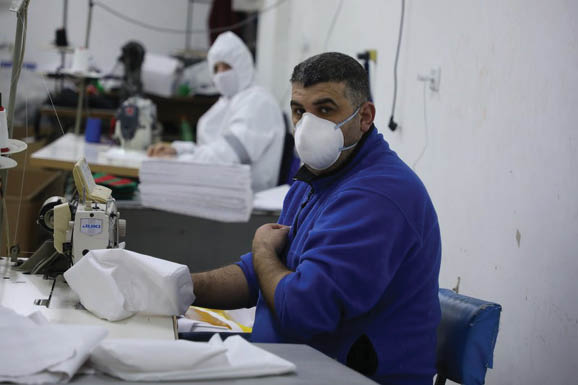
But how to operate in a concrete way? In the immediate future, our focus should be on repurposing (repositioning and converting) industrial activity, keeping production afloat. As a temporary strategy in rapid response, repurposing is geared to addressing the global shortage of COVID-19 critical items that can save lives by using idle manufacturing capacity and leveraging on proven designs and methods as shown on the infographic below as provided by UNIDO’s Department of Policy Research and Statistics.
Among the examples that can be provided on a local scale, the most immediate one concerns the garment supply chain: the production of masks and jumpsuits with other protective gear will be necessary for the months and perhaps years to come. It would be short-sighted to rely on importing stockpiles from abroad since we know that many producing countries have already seized their wares, limiting or even blocking their distribution in the partnering countries when the internal need for masks is peaking and will continue to be high for months to come. This example reflects also the need to make local production the new priority. In past years, unprotected competition had already undermined Palestine’s production capacity. Considering that in the current COVID-19 scenario the global supply chain is particularly weak due to the lack of intermediate goods and components, we must rediscover the importance of Palestinian industrial manufacturing and its capacity to respond primarily to the needs of the Palestinian first responders and the population. Building on local production at this stage will also enable us to exploit as soon as possible the growth potential offered by exports, with particular reference to neighboring regional markets.
The Palestinian people are our most vulnerable yet valuable asset in efforts to overcome the economic effects of the pandemic.
After the first reaction to the emergency, a new transitional phase leading towards a post-COVID-19 scenario (transitioning to the new “normal” after COVID-19) will require additional sophistication and further defined strategic interventions. New assets and skills need to guide the transformational development of the Palestinian economy towards a resilient and viable industry. This new sprint is especially needed for the private sector, whose highest-yielding businesses must be the focus of selected investments, concentrating the financial resources that it will be possible to allocate on energy and ICT. Sectoral initiatives will have to be assessed, highlighting whether training, research, and technology transfers, as well as technological upgrades and bespoke management interventions in specific value chains, can lead to a gain in medium- to long-term competitiveness.
These strategic insights, as widely shared by analysts and international business experts, show us how the development of a concerted policy must be a government priority to be responded to as quickly as possible. Guidelines, incentives, and tax breaks must be tailored to the needs of the different production sectors and oriented towards supporting the whole value chain in order to emphasize its systemic effect. Working together with policymakers, the banking system is called upon to play its part to mitigate the shock. Without undermining its overall soundness, measures are needed to maintain credit flowing to the economy and citizens to keep business alive for the months to come. In addition, the careful and wise use of available resources, that are expected to be further limited, must be extended to support supply chains and public policy, now more than ever, while ensuring that every Euro that is spent can and will make a difference! This is also the case for the financial resources that will be offered generously by donors; resources that must be coordinated, utilized, and monitored in accordance with even more stringent measures.
A potential for industrial expansion in Palestine lies in the production of masks and personal protective gear as well as support to food safety and supply of food inspection tool kits.
Continuing to implement its programs despite the significant logistical difficulties imposed by COVID-19, the United Nations Industrial Development Organization (UNIDO) is reviewing its action plans to ensure that the previously expected results are confirmed according to the original time frame. Aware that the opportunities to streamline and promote the national industry, as offered by the COVID-19 scenario, need to be seized without hesitation, UNIDO has already started to identify and organize feasible, complementary actions to its ongoing interventions, working together with the government and donors. Planning is still in progress, but some expected results can already be unveiled. Under the “Upgrading the Garments and Textile Value Chain in the Northern Governorates” program, funded by Japan and implemented in partnership with the Ministry of National Economy, some facilities are now planned to be utilized for the production of much-needed masks and protection gear in the new “KHITAN–Creative Fashion Design Center” which, COVID-19 permitting, is supposed to be inaugurated in May in Jenin. In the field of food processing and inspection of the food chain, UNIDO is currently implementing a regional food safety program (SAFE) to make available the most-needed food inspection tool kits to support the Ministry of National Economy and the Ministry of Health. This will especially contribute to maintaining most-needed food safety as the demand on food industries is expanding.

The impact of fixed costs has always been holding back the Palestinian economy; and energy, which accounts for 40 percent of production costs, represents the most significant item. Together with the Office of the European Union Representative (EUREP), UNIDO is promoting an energy-sustainable Palestinian industry through efficient renewable energy, smart grids, and cleantech. This constitutes a green transition within a circular-economy model that should be considered the very heart of economic stimulus packages in the next set of actions. This medium- and long-term initiative has a great potential for the years to come and will prove crucial for economic recovery at the end of the health emergency in the West Bank, East Jerusalem, and the Gaza Strip. This intervention, in particular, is also in line with the guidelines that have been formalized in the 2030 Agenda for Sustainable Development, approved by all United Nations Member States. The synergized achievements of its Sustainable Development Goals put the bases for a virtuous combination of industrial competitiveness, carbon reduction and, last but not least, social inclusion through job creation. These are strategic targets that should not be put aside because of the financial shortage, but whose application needs to be recalibrated as our given priority is facing the survival and transformation of the economic activities.
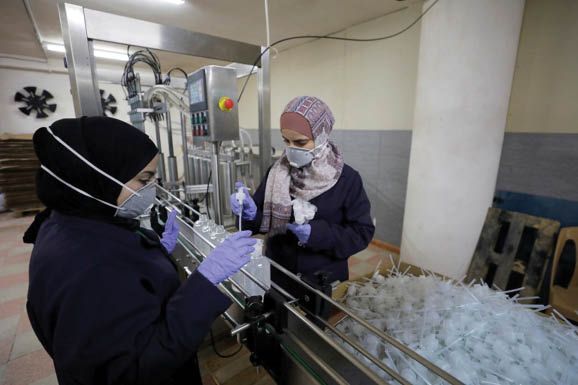
It is often said that behind every crisis hides an important opportunity to reset the system in a more virtuous way: never before have these words appeared to us as a wise warning that should not remain a dead letter. For this reason, the new policy frameworks should not be understood as mere mitigation efforts but as an opportunity to reform our productivity in favor of a more stable, sustainable, and inclusive economic and social model. In the last weeks, it has also been said that “whatever it takes” would be done to support the vital level of the economy. Too many times since the outbreak of the pandemic at the global level, sectoral interests and national logics have sadly tried to prevail over cooperation and mutual support. At all bearable costs, we should avoid affirming this logic in Palestine.
Let’s try to capture the opportunity to intervene where more is needed, concentrating the injection of resources towards preserving industrial and productive systems, aiming to become more competitive through strategically crafted interventions.
In partnership with the counterparts, including the Ministry of National Economy, national stakeholders, and donors, UNIDO is already advancing several programmatic actions with a strategic orientation to strengthen the stability of the Palestinian economy beyond the emergency phase. Supporting industrial development through the expansion of industrial zones has always been among UNIDO’s core missions. For this purpose, Jericho and, in particular, the Gaza Strip, are considered the most vulnerable places where the support of a solid manufacturing sector can be crucial for the livelihoods of many people. Looking at the economic disparities, UNIDO is also partnering with the regional Women’s Economic Empowerment program, financed by Italian Development Cooperation, which focuses on the economic stability of women after the COVID-19 emergency, and is hence identifying potential expansion and consolidation of sectors in the agribusiness and technology markets.
Industrial competitiveness, carbon reduction and, social inclusion through job creation are strategic targets that should not be put aside because of financial shortages, but whose application needs to be recalibrated, as our given priority is to ensure the survival and transformation of economic activities.
Let us avoid giving in, whether willingly or unwillingly, to the downward spiral that COVID-19 woefully imposed on us only to survive: let us, collectively, make the best use of our intelligence and resources so that, when we are finally able to put the pandemic behind us, the post-crisis phase might have laid the foundation for an increased prosperity to come.

